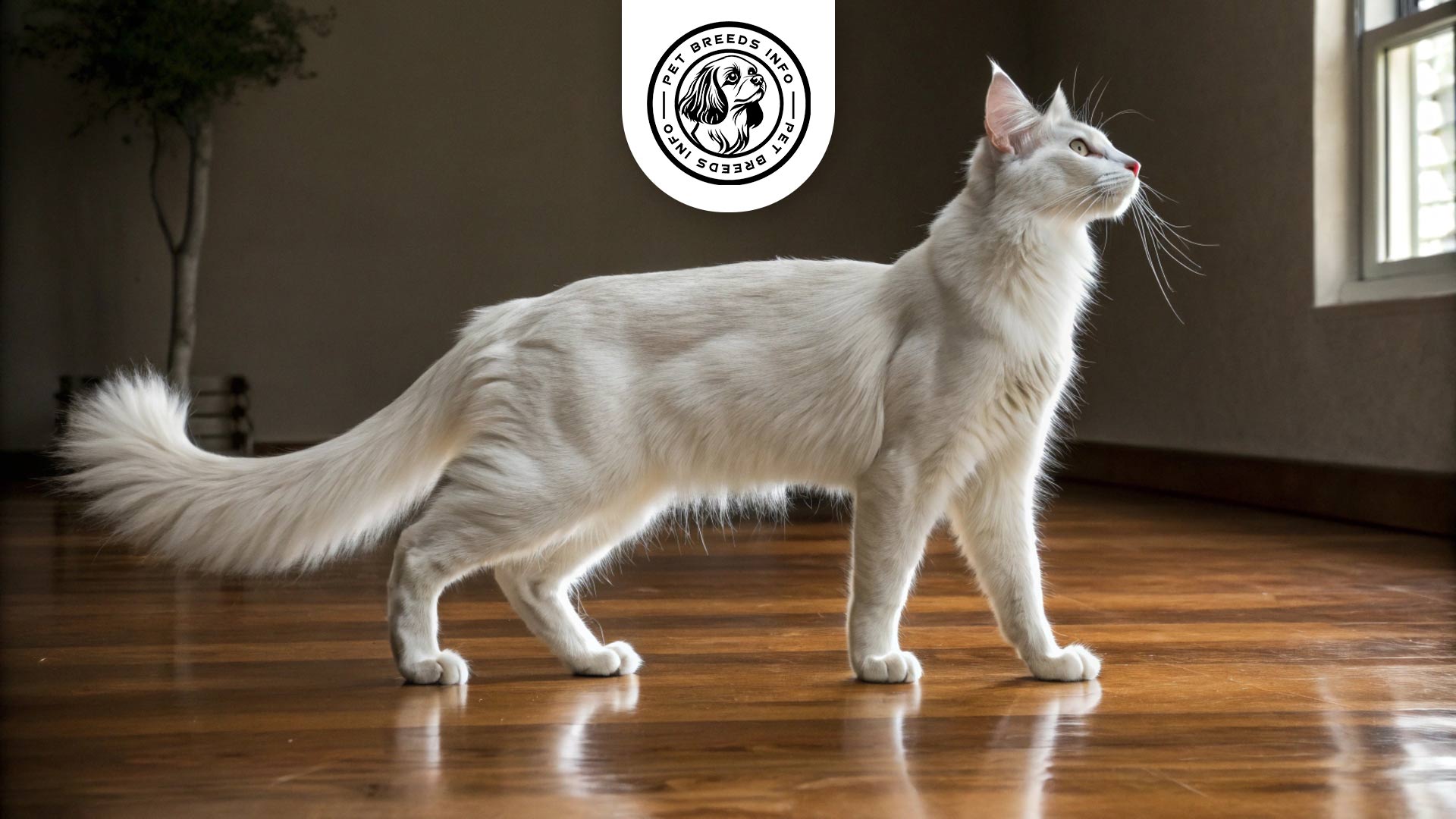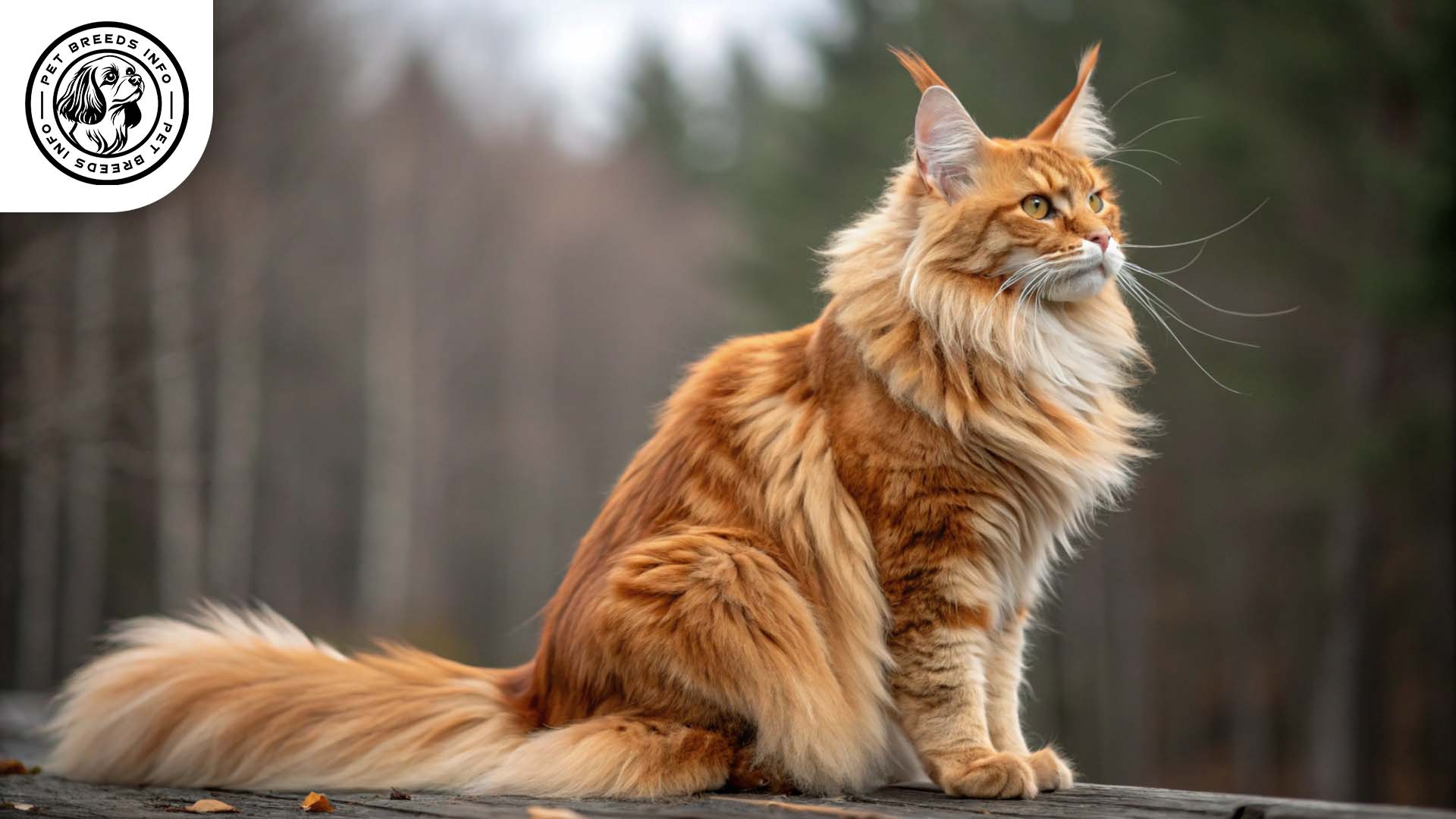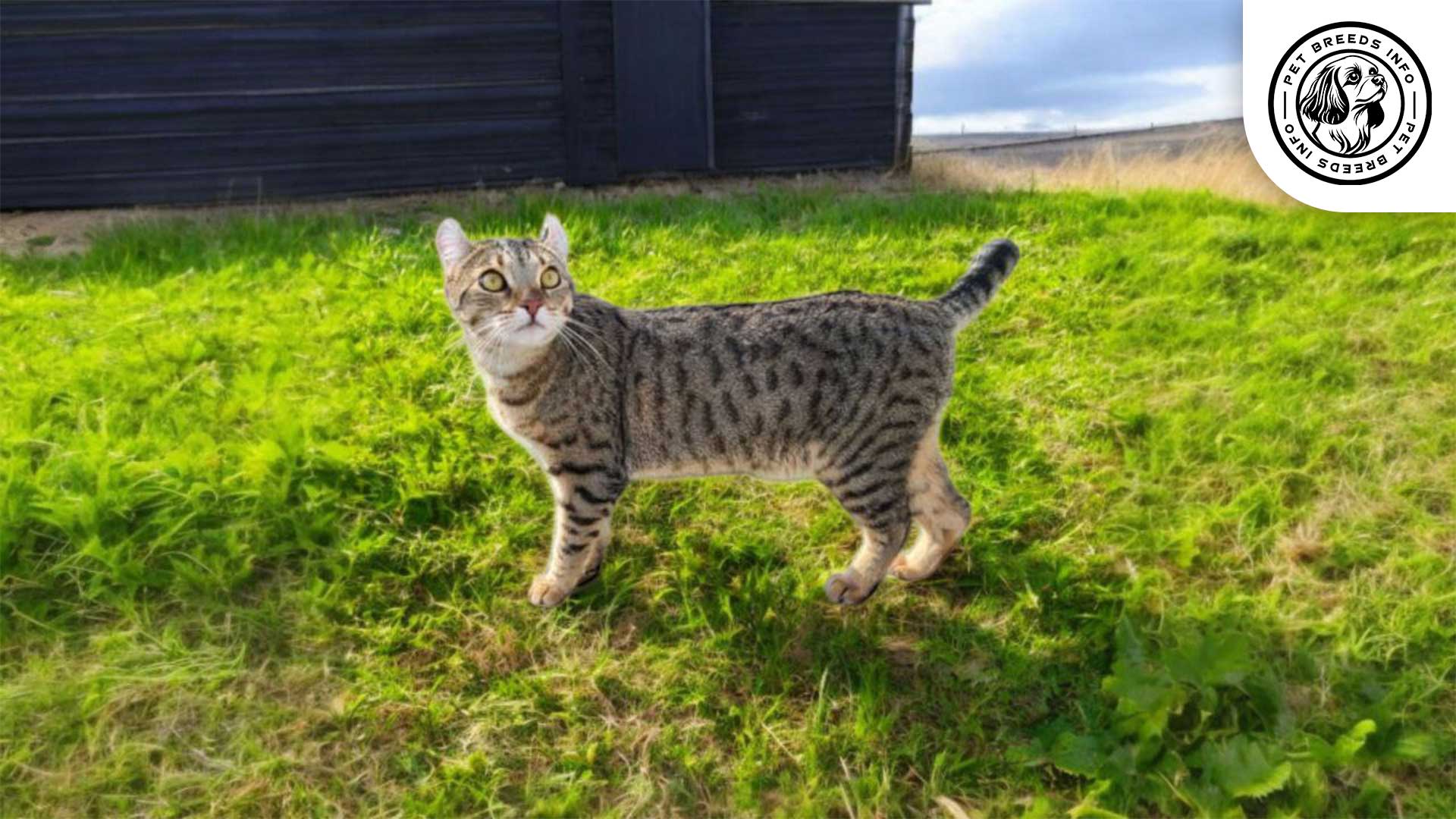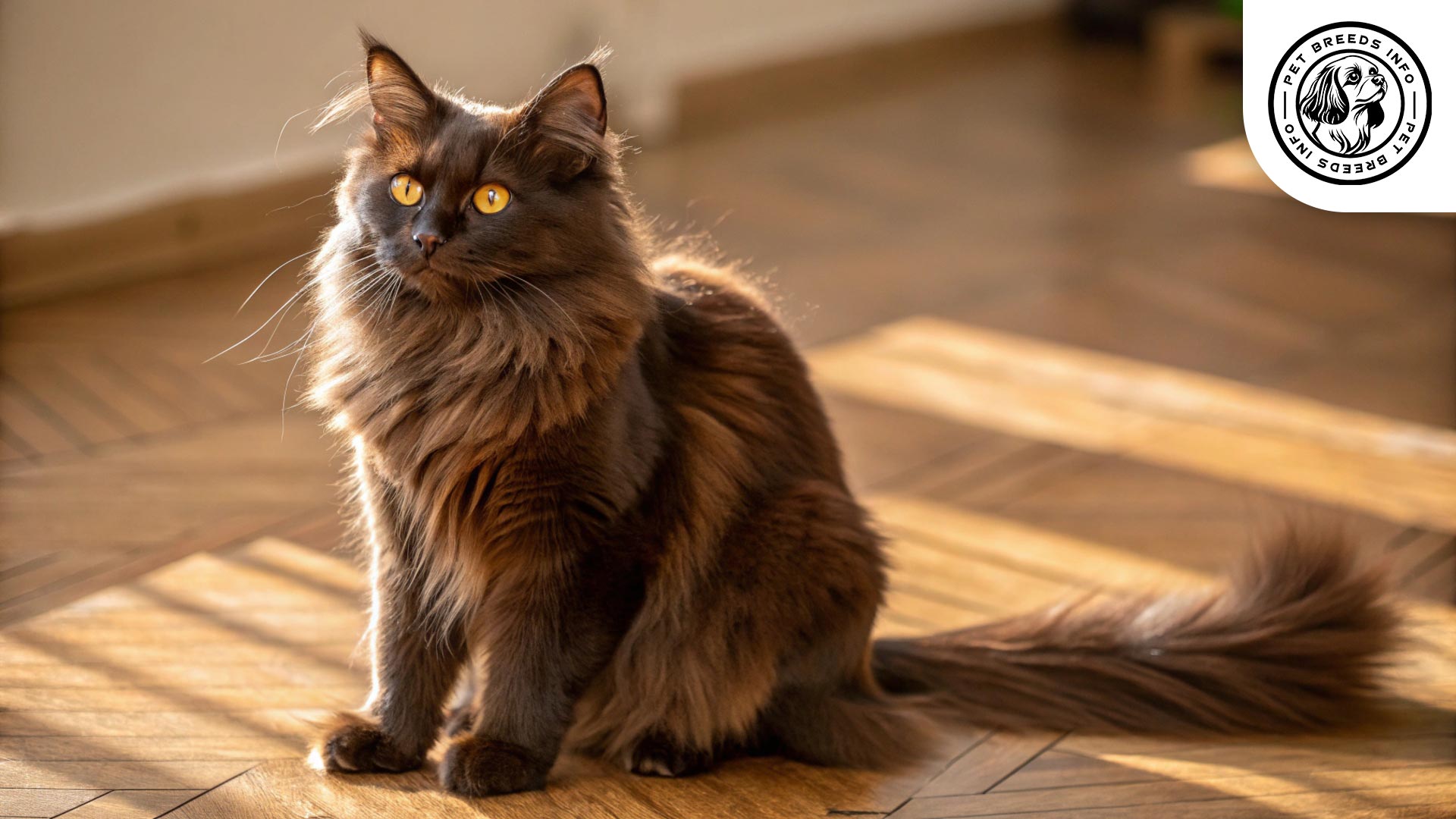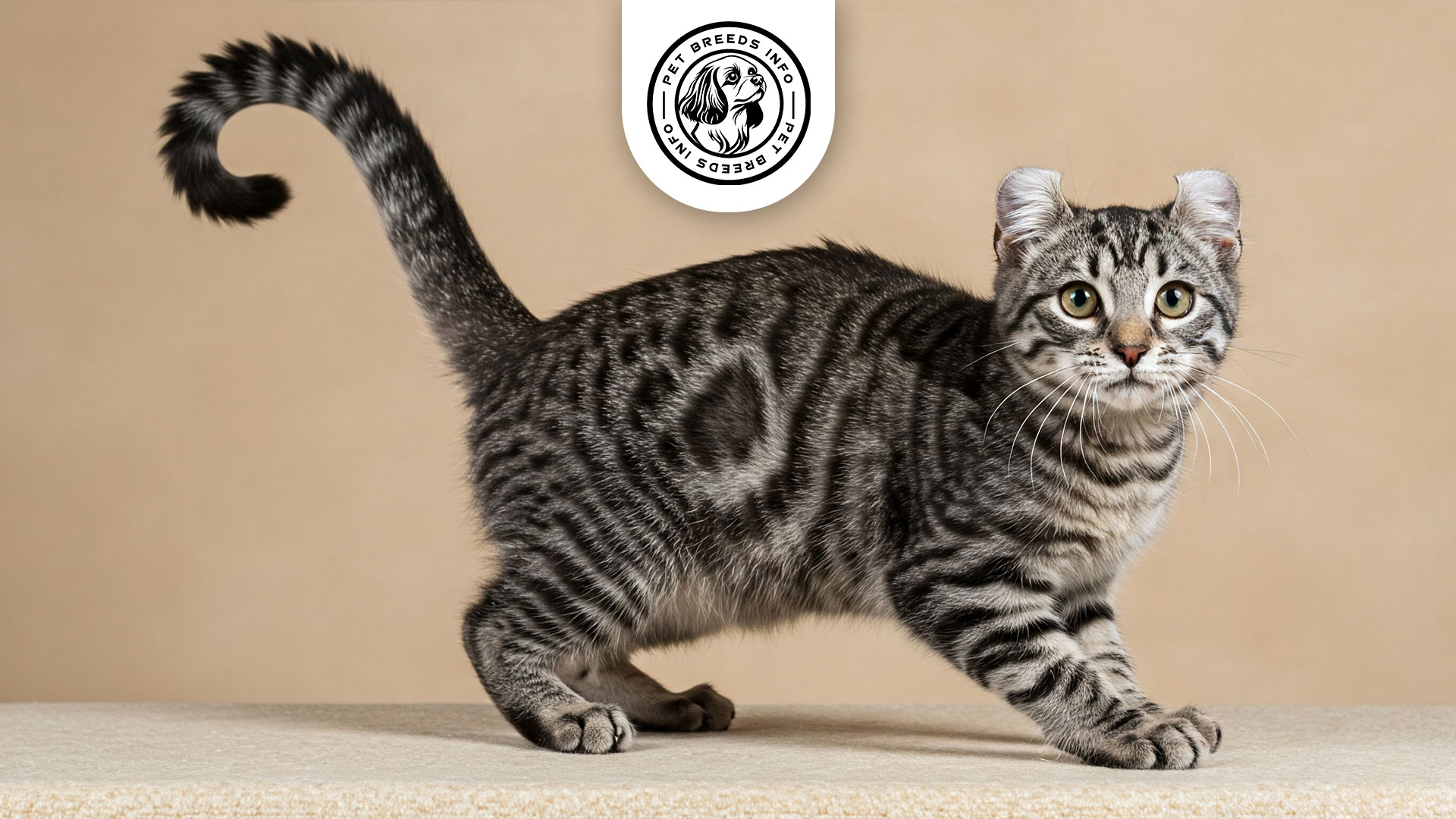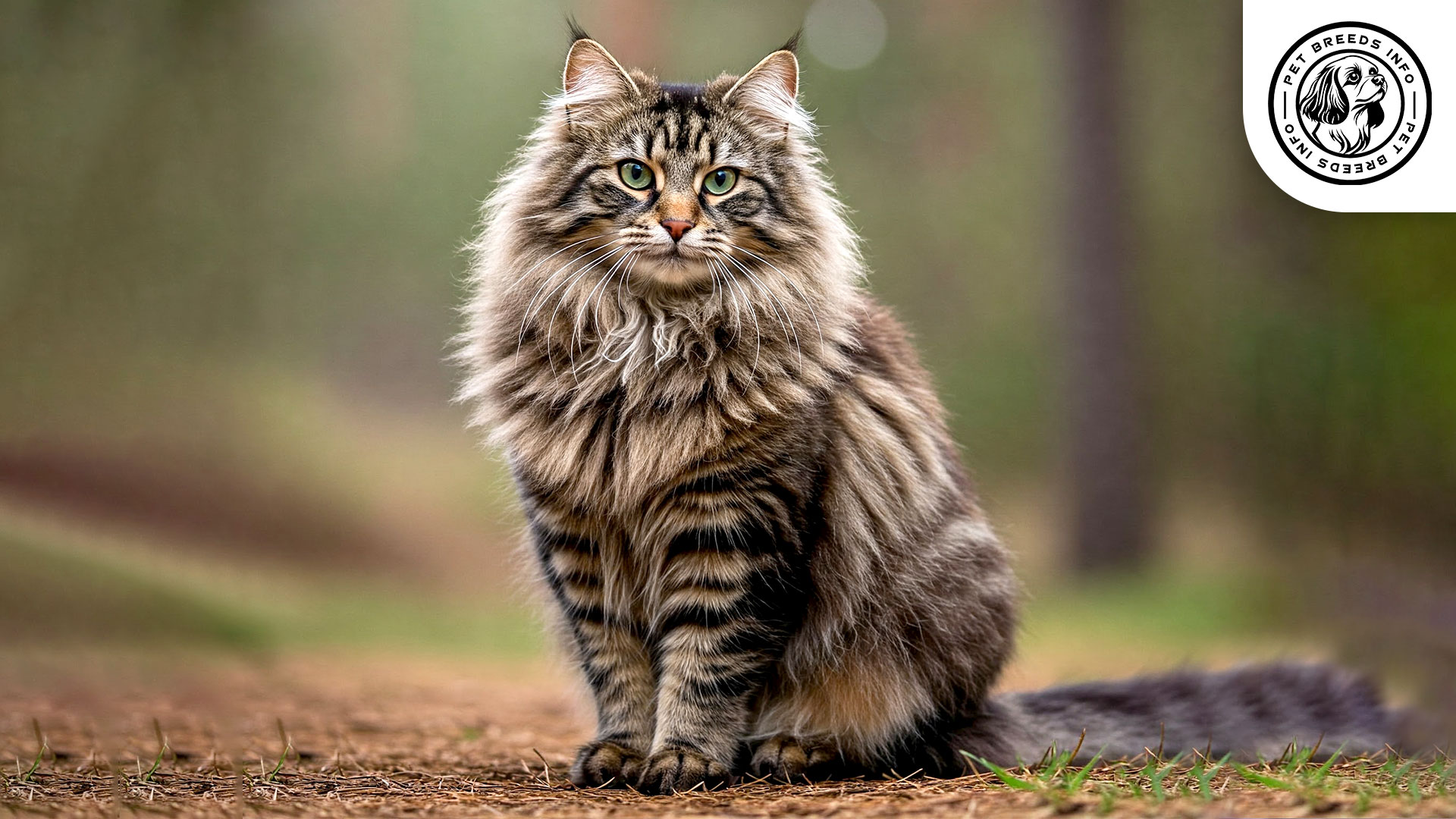Turkish Angora Cat Breed: Size, Health, Price & Personality
General Introduction of the Breed
General Introduction of the Turkish Angora Cat Breed
The Turkish Angora, or Ankara Kedisi in Turkish, is a timeless and elegant cat breed hailing from Turkey. With roots stretching back to at least the 16th century, this breed boasts a rich history. Often called simply the Angora cat, it caught the eye of European travelers who introduced it worldwide, sparking its global fame. These cats played a key role in reviving the Persian breed long ago, yet they’ve kept their own unique charm. Today, Turkish Angoras are adored for their graceful looks and affectionate personalities, making them a beloved choice for those seeking a loving, sophisticated feline friend.
The Turkish Angora is a graceful, affectionate, and intelligent cat that thrives on attention, play, and forming deep bonds with its family.Quick Overview
Affectionate - 90%
Independent - 60%
Intelligent - 95%
Sociable - 85%
Vocal - 70%
Shedding - 50%
Energetic - 90%
77%
100
| Weight | Males: 7-10 lbs (3-4.5 kg), Females: 5-8 lbs (2.5-3.5 kg) |
| Lifespan | 12-18 years |
| Color | White, black, blue, red, cream, tabby patterns, and various other colors. Odd eyed (heterochromia iridum) is possible. |
| Diet | High-quality protein-based diet, combination of dry and wet food, avoid chocolate, caffeine, onions, garlic, excessive dairy |
| Care | Weekly brushing, regular grooming (ear cleaning, nail trimming, dental care), ample playtime and interactive toys |
| Health | Generally healthy, prone to hereditary ataxia (in kittens), potential for congenital deafness in white blue-eyed cats |
| Nature | Intelligent, affectionate, energetic, playful, social, adaptable |
| Price | $600 – $1,500 (from reputable breeders) |
Table of Contents
Physical Characteristics
Turkish Angoras are medium-sized cats with a slender, muscular frame. Males typically weigh between 7-10 pounds (3-4.5 kg), while females are slightly smaller, weighing 5-8 pounds (2.5-3.5 kg). They have a long, silky, and soft single-layer coat that comes in various colors, including white, black, blue, red, cream, and tabby patterns.
Their eyes are large, almond-shaped, and can be blue, green, amber, or even odd-eyed (each eye a different color). They have large, pointed ears that sit high on their head, and their long, plumed tail gives them a distinctive appearance. Their slender body, refined bone structure, and elegant stance make them one of the most graceful cat breeds.
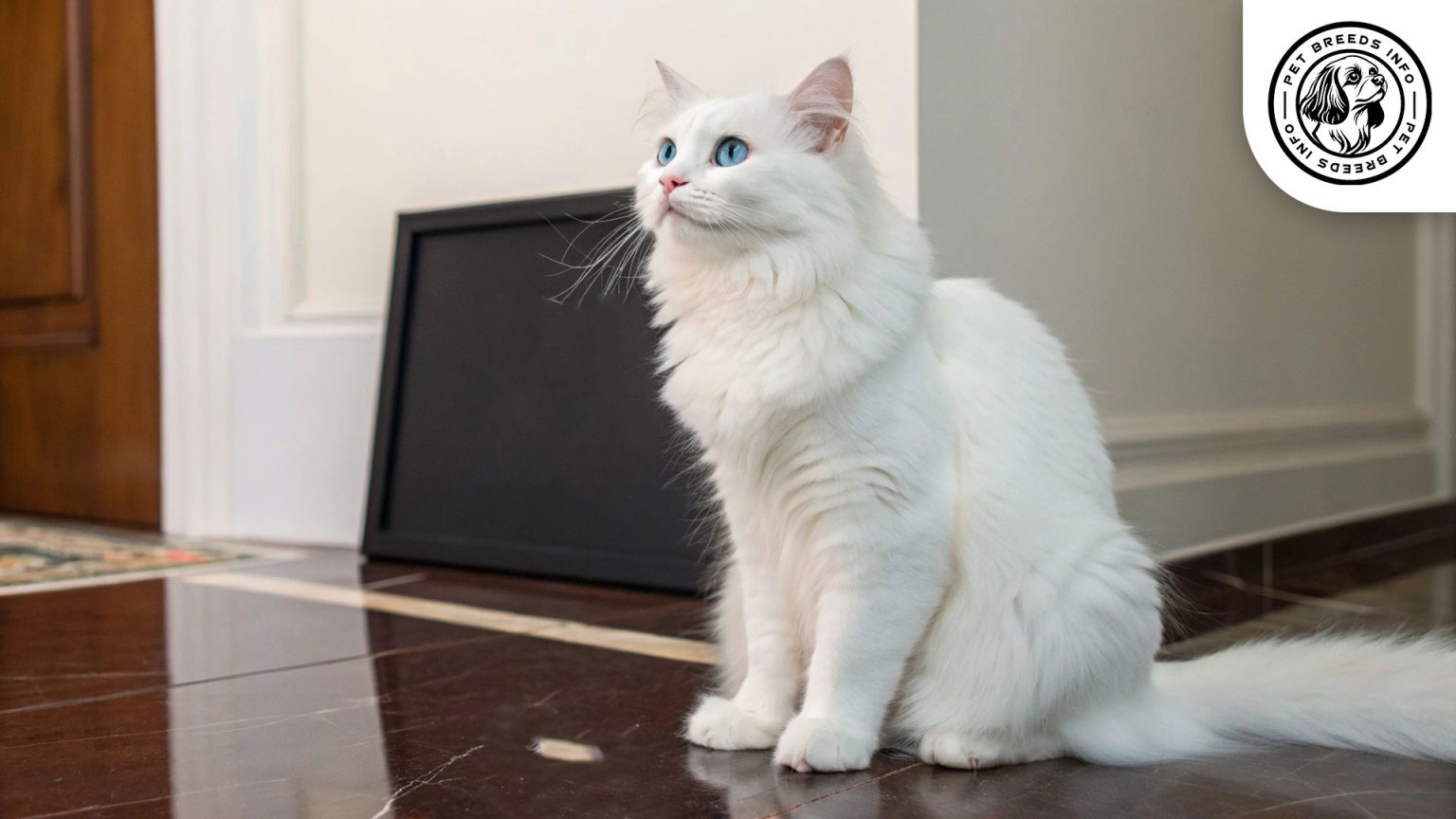
Personality and Temperament
Turkish Angoras are highly intelligent and quick learners. They enjoy interactive play and mental challenges. They are energetic cats that remain active well into adulthood, requiring regular physical and mental stimulation.
They are affectionate and form strong bonds with their owners. They often follow their humans around the house and enjoy being involved in daily activities. This breed is social and generally gets along well with children and other pets, although they may prefer being the dominant pet in a household. Their playful and mischievous nature makes them delightful companions.
Turkish Angoras adapt well to changes but can be sensitive to sudden environmental shifts. They thrive in a stable and engaging home environment where they receive plenty of attention.
Care and Maintenance Requirements
Due to their high energy levels, Turkish Angoras need ample playtime and interactive toys to keep them engaged. They are well-suited for both apartments and larger homes, as long as they have enough space to explore and climb.
Read Mora: Burmese Cat
Despite their long fur, their coat is relatively low-maintenance since they lack an undercoat. Weekly brushing is usually sufficient to keep their fur smooth and tangle-free. They are moderate shedders, with occasional higher shedding periods during seasonal changes.
They are generally resistant to cold weather, but extreme heat may affect them. It is important to provide them with plenty of fresh water and shaded areas in warm climates. Routine grooming, including ear cleaning, nail trimming, and dental care, should be part of their regular maintenance routine.
Diet and Nutrition
Turkish Angoras thrive on high-quality protein-based diets. A combination of dry and wet cat food is ideal, but some owners also choose raw or natural diets with veterinary guidance. Protein-rich food supports their active lifestyle.
Certain foods should be avoided, including chocolate, caffeine, onions, garlic, and excessive dairy products. Overfeeding can lead to obesity, so portion control is essential. Most Turkish Angoras do well with two balanced meals per day.
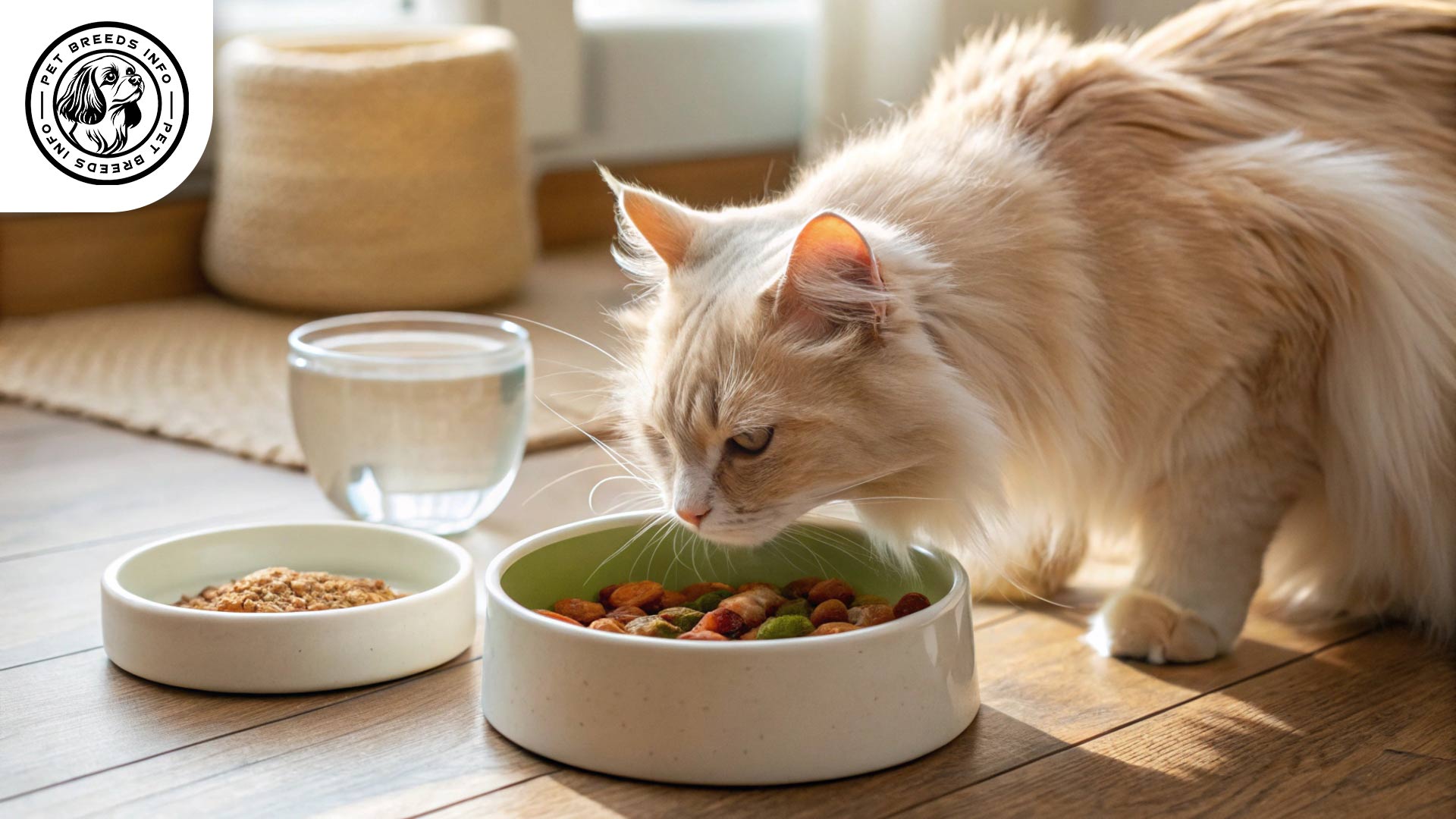
Health and Common Medical Issues
Overall, Turkish Angoras are a healthy breed with a lifespan of 12-18 years. However, they are prone to some genetic conditions, including hereditary ataxia, which affects coordination in kittens. White Turkish Angoras with blue eyes may be at higher risk for congenital deafness.
Read More: Bengal Cat
Routine vaccinations, parasite control, and regular veterinary checkups are important to maintain their health. A well-balanced diet and an active lifestyle contribute to their longevity.
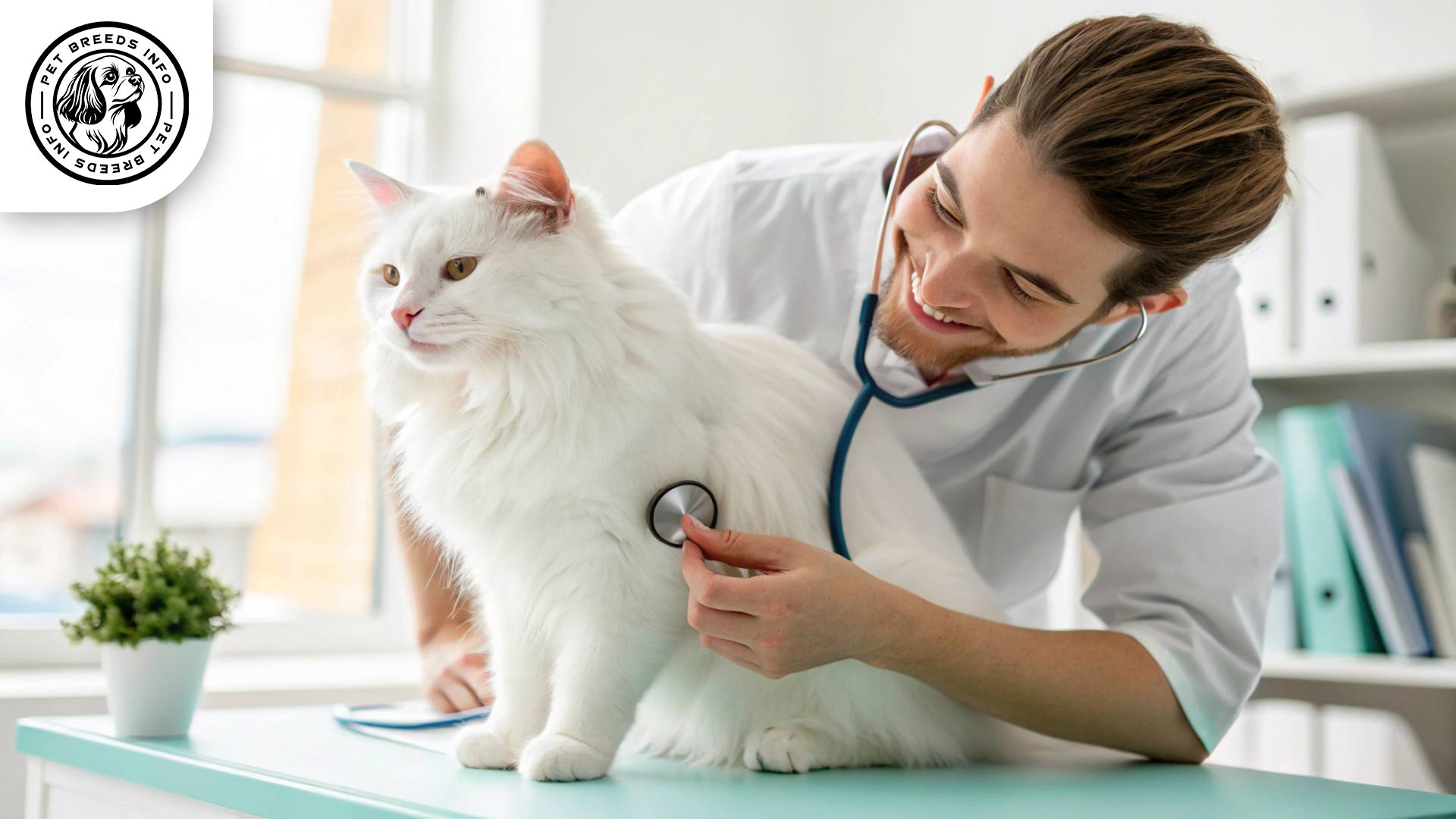
Training and Behavior Management
Turkish Angoras are intelligent and responsive to training. They can learn tricks, respond to commands, and even enjoy interactive puzzle toys. Positive reinforcement methods, such as treats and praise, work best with this breed.
Early socialization is essential to ensure they grow into well-adjusted pets. They appreciate structured routines and do well with consistent behavioral reinforcement. Training should be focused on encouraging desirable actions rather than scolding unwanted behavior.
Interaction with Other Animals and Humans
Turkish Angoras are affectionate cats that bond deeply with their owners. They enjoy interacting with children and typically tolerate other pets if properly introduced. However, they prefer environments where they receive ample attention.
While they enjoy human companionship, they are independent enough to entertain themselves when necessary. They tend to be more social than aloof, making them ideal for families or individuals looking for a loving pet.
Read More: Savannah Cat
Price and Availability
The Turkish Angora price can vary depending on pedigree, coat color, and breeder reputation, typically ranging from $600 to $1,500 from reputable breeders. For a budget-friendly option, adoption is awesome check shelters or breed-specific rescue groups, though these elegant cats are rare finds there. When buying, always pick ethical breeders who provide health certifications to ensure your kitty is healthy and well-cared-for. Doing your homework on the breeder’s practices helps you bring home a happy, graceful Turkish Angora ready to add love and charm to your life.
Final Thoughts
The Turkish Angora is an elegant, intelligent, and affectionate cat breed suitable for many types of owners. They thrive in interactive environments where they receive attention and stimulation.
This breed is ideal for families, active individuals, or anyone seeking a playful and loving feline companion. However, they require dedicated engagement, regular grooming, and proper training to ensure they remain happy and healthy.
Potential owners should be prepared to provide mental and physical enrichment, regular veterinary care, and a loving home. With the right care, a Turkish Angora can be a treasured companion for many years.
FAQ
What is the typical lifespan of a Turkish Angora cat?
Turkish Angoras typically live between 12 to 18 years.
What kind of diet is best for a Turkish Angora?
A high-quality protein-based diet is recommended. A combination of dry and wet food is ideal, but some owners also choose raw or natural diets with veterinary guidance. Avoid foods like chocolate, caffeine, onions, garlic, and excessive dairy.
How often should I groom my Turkish Angora?
Weekly brushing is usually sufficient to keep their fur smooth and tangle-free. Routine grooming, including ear cleaning, nail trimming, and dental care, should also be part of their regular maintenance routine.Weekly brushing is usually sufficient to keep their fur smooth and tangle-free. Routine grooming, including ear cleaning, nail trimming, and dental care, should also be part of their regular maintenance routine.
Are Turkish Angoras prone to any health issues?
While generally healthy, they are prone to some genetic conditions, including hereditary ataxia (which affects coordination in kittens). White Turkish Angoras with blue eyes may be at a higher risk for congenital deafness.
What is the typical price range for a Turkish Angora from a reputable breeder?
The cost of a Turkish Angora varies based on pedigree, coat color, and breeder reputation. Prices typically range from $600 to $1,500 from reputable breeders.
